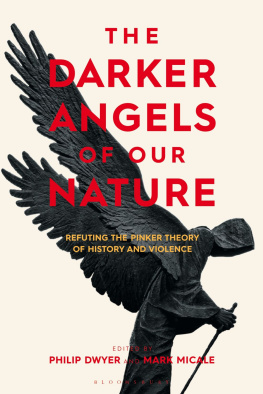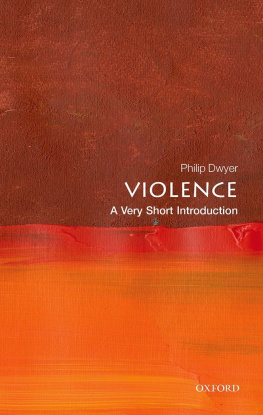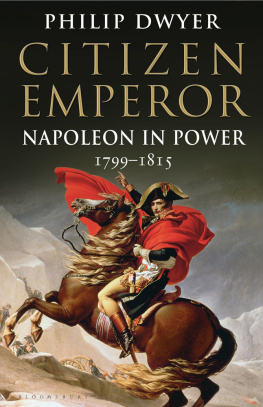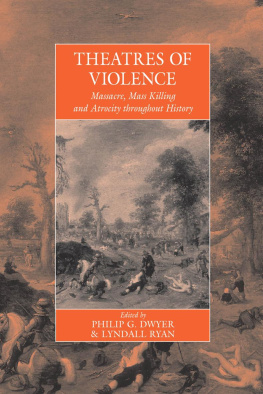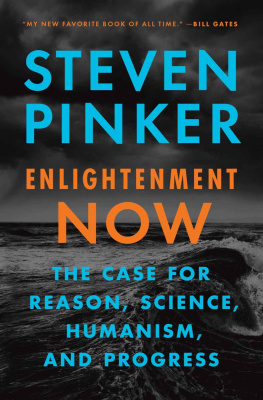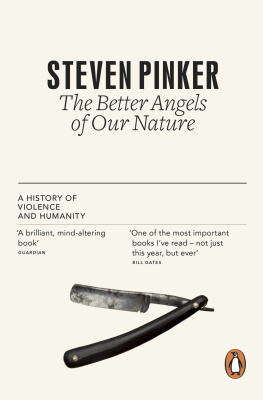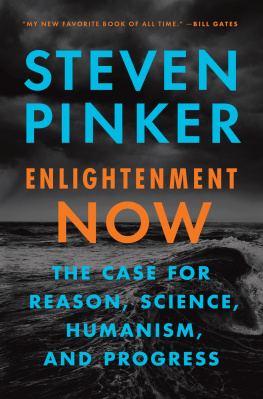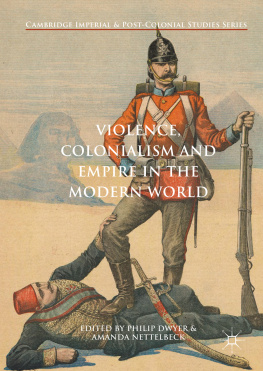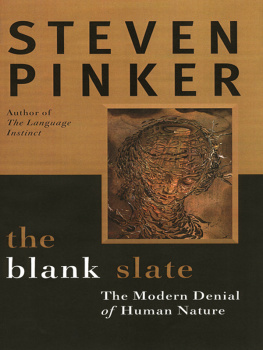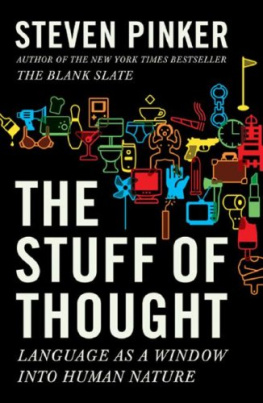The Darker Angels of Our Nature
The Darker Angels of Our Nature
Refuting the Pinker Theory of History & Violence
Edited by
Philip Dwyer and Mark Micale

Contents
Philip Dwyer and Mark S. Micale
Daniel Lord Smail
Dag Lindstrm
Eric D. Weitz
David A. Bell
Philip Dwyer and Elizabeth Roberts-Pedersen
Linda Fibiger
Sara M. Butler
Philip Dwyer
Nancy Shields Kollmann
Michael Wert
Caroline Elkins
Matthew Restall
Joanna Bourke
Robert T. Chase
Corey Ross
Susan K. Morrissey
Mark S. Micale
Russias first spectacle of execution: The execution of musketeers, Moscow 1698, published in Johann-Georg Korb, Diarium itineris in Moscoviam (Vienna, 1700). Library of the Hoover Institution, Stanford, CA |
David A. Bell is a historian of early modern France, with a particular interest in the political culture of the Old Regime and the French Revolution. From 1990 to 1996, he taught at Yale, and from 1996 to 2010 at Johns Hopkins, where he held the Andrew W. Mellon chair in the Humanities, and served as Dean of Faculty in the School of Arts and Sciences. He joined the Princeton faculty in 2010. He has been the recipient of fellowships from the Guggenheim Foundation, the American Council of Learned Societies and the Woodrow Wilson International Center for Scholars. He is the author of six books, including Lawyers and Citizens (Oxford, 1994), The Cult of the Nation in France (Harvard, 2001), The First Total War (Houghton Mifflin, 2007) and Rethinking the Age of Revolutions: France and the Birth of the Modern World , with Yair Mintzker (Oxford, 2018). His latest book is Men on Horseback: Charisma and Power in the Age of Revolutions (Farrar, Straus, Giroux, 2020).
Joanna Bourke is Professor of History at Birkbeck, University of London, and a Fellow of the British Academy. She is also the Global Innovation Chair at the University of Newcastle (Australia, 201721). She is the principal investigator on a five-year Wellcome Trust-funded project entitled SHaME (Sexual Harms and Medical Encounters). She is the prize-winning author of thirteen books, as well as over 100 articles in academic journals. She is a frequent contributor to TV and radio shows, and a regular correspondent for newspapers. She has published The Story of Pain: From Prayer to Painkillers (Oxford, 2014), and Wounding the World: How Military Violence and War-Play Are Invading Our Lives (Virago, 2014).
Sara M. Butler is King George III Professor in British History at the Ohio State University. She is the author of three books: The Language of Abuse: Marital Violence in Later Medieval England (Brill, 2007), Divorce in Medieval England: From One to Two Persons in Law (Routledge, 2013) and Forensic Medicine and Death Investigation in Medieval England (Routledge, 2015). She has also written on a variety of other subjects such as abortion, infanticide, juries of matrons, regulation of the medical profession and suicide.
Robert T. Chase is Associate Professor of History at Stony Brook University, State University of New York (SUNY). He is the author of We Are Not Slaves: State Violence, Coerced Labor, and Prisoners Rights in Postwar America (University of North Carolina Press, 2020) and the editor of Caging Borders and Carceral States: Incarcerations, Immigration Detentions, and Resistance (University of North Carolina Press, 2019). His work on the history of prison and policing reform and state violence has been featured on national media programmes through radio, newspapers and television, including MSNBC, CNN and NPR, Newsweek , Washington Post . He is currently working on a history of sheriffs in the US South and Southwest.
Philip Dwyer is Professor of History and the founding director of the Centre for the Study of Violence at the University of Newcastle. He has published widely on the Revolutionary and Napoleonic eras, including a three-volume biography of Napoleon. He is the general editor (with Joy Damousi) of the four-volume Cambridge World History of Violence and co-editor of the Cambridge History of the Napoleonic Wars . He is currently engaged in writing a global history of violence.
Caroline Elkins is Professor of History and African and African American Studies at Harvard University, a visiting professor of business administration at Harvard Business School and the founding director of Harvards Center for African Studies. Her first book, Imperial Reckoning: The Untold Story of Britains Gulag in Kenya (Henry Holt, 2005), was awarded the 2006 Pulitzer Prize for General Non-Fiction. She is a contributor to The New York Times Book Review , The Atlantic and The New Republic . She has also appeared on numerous radio and television programmes including NPRs All Things Considered , BBCs The World and PBSs Charlie Rose . She is currently working on two projects: one examining the effects of violence and amnesia on local communities and nation-building in post-independent Kenya; the other analysing British counter-insurgency operations after the Second World War, with case studies including Palestine, Malaya, Kenya, Cyprus and Nyasaland. Professor Elkins teaches courses on modern Africa, protest in East Africa, human rights in Africa and British colonial violence in the twentieth century.
Linda Fibiger is Senior Lecturer in Human Osteoarchaeology at the University of Edinburgh and Programme Director of the MSc in Human Osteoarchaeology. She has published widely on bioarchaeological perspectives on violence and conflict, experimental bioarchaeology, reconstructions of past lifeways and the promotion of professional standards, ethics and legislation in bioarchaeology. She is currently involved in the European-funded The Fall of 1200 BC project for which she is leading the analysis of human skeletal remains from the Balkans, with a particular focus on population relationships, lifestyle and indicators of crisis and conflict.
Nancy Shields Kollmann is William H. Bonsall Professor in History at Stanford University; she specializes in early modern Russian history with an emphasis on the history of law, represented in By Honor Bound. State and Society in Early Modern Russia (Cornell, 1999) and Crime and Punishment in Early Modern Russia (Cambridge, 2012). Her The Russian Empire 1450-1801 (Oxford, 2017) surveys the growth and governance of the Russian empire as a Eurasian empire of difference. She is currently working on visual sources of early modern Russia, both produced in Russia and in European travel accounts, maps, and pamphlet literature.
Dag Lindstrm is Professor of History at Uppsala University in Sweden. He has conducted research on the history of crime since the 1980s and is co-author (with Eva sterberg) of Crime and Social Control in Medieval and Early Modern Swedish Towns (Uppsala, 1988). Lindstrm has published widely in the field of urban social and cultural history from Medieval times to the early nineteenth century. He is co-editor (with Alida Clemente and Jon Stobart) of Micro-Geographies of the Western City, c.1750-1900 (forthcoming, 2021) and co-author (with Gran Tagesson) of Houses, Families, and Cohabitation in Eighteenth-Century Swedish Towns (forthcoming, 2021). His more recent research includes a Nordic comparison of homicide between the seventeenth century and the present. The results will appear in Janne Kvivouri et. al, Homicide in Deep Time: Nordic Homicide from Early Modern to Present Era (forthcoming 2021).
Mark S. Micale is Emeritus Professor of History at the University of Illinois in Urbana-Champaign. His fields of specialization include modern comparative European intellectual and cultural history; post-Revolutionary France; the history of science and medicine, especially the mental sciences; psychoanalytic studies; masculinity studies; and historical trauma studies. He is the author or editor of seven books, including Beyond the Unconscious (Princeton, 1993); Discovering the History of Psychiatry (Oxford, 1994); Traumatic Pasts: History, Psychiatry, and Trauma in the Modern Age, 1870-1930 (Cambridge, 2001); The Mind of Modernism: Medicine, Psychology, and the Cultural Arts in Europe and America, 1880-1940 (Stanford, 2003); Enlightenment, Passion, Modernity: Historical Essays in European Thought and Culture (Stanford, 2000); and Hysterical Men: The Hidden History of Male Nervous Illness (Harvard, 2000). After thirty years of teaching at Yale, the University of Manchester and the University of Illinois he retired in 2017 and now lives in Los Angeles.

